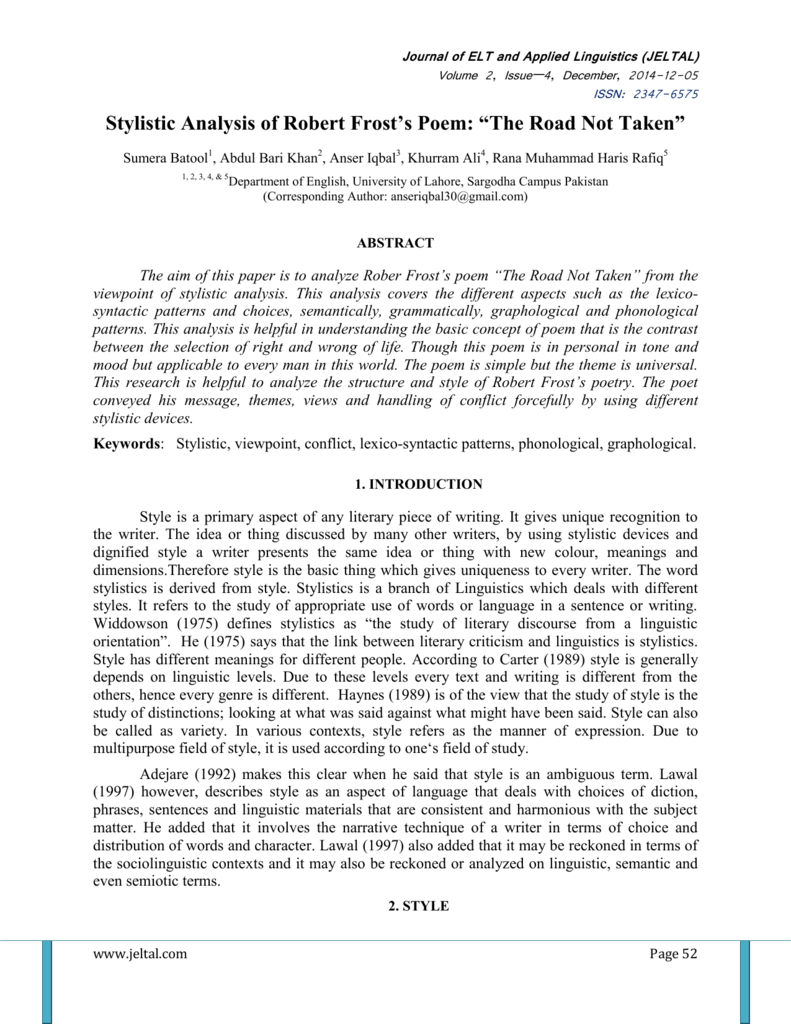

#ROAD NOT TAKEN SUMMARY STANZA WISE FREE#
It is only when people are free to disagree that they can be truly close to each other. What the poem ultimately reveals is that contrariness is necessary in personal relationships. The husband and the wife in the poem are two different people, but they are united because their differences are blended harmoniously. Similarly, the concluding lines of "West-Running Brook" underscore the love that makes the marriage meaningful. It may also be that the west-running brook is American originality that eschewed the European models in art and literature. The poem also has certain implicit references about the white and black contrasts, the domination of the black by the white, which was at the time an issue behind the partition of the northern and southern states and the conflict between the Negro of the west and of the east. The white water is simultaneously with them, behind them, and beyond them. The most fully developed appreciation of the stream as an emblem occurs in "West-Running Brook". The implication of the symbolic weight which he gives the wave is that contrariness is not only necessary to man. They represent the rational approach to life. It is only when people are free to disagree that they can be truly close to one another. Contrariness is necessary in personal relationships. The poem gains complexity by moving on two levels, the personal and the strictly philosophical. By being contrary and asserting his independence, man like the brook becomes individual. Finally, the man and his wife agree that they have had a joint insight into reality. It was from this pure contrariness that man evolved. It is this contrariness which makes man stronger than death, and which enables him to endure. Man moves toward death, and yet in a contrary way resists death. Man’s existence flows away like water, and yet is continually thrown back towards its sources. He sees that wave not simply as a symbol of their relationship, but as a symbol of existence. But the husband is much more thoughtful the husband then indulges in a long discussion about existence. The wife sees that contrariness as a symbol of the relationship with her husband. By running down to the west, the brook distinguishes itself from all other brooks, which run east to the ocean.

More generally, it is also about whether to follow traditional paths in life, in thought, or in anything. One of the most striking interpretations is an autobiographical one: Frost refused to belong to any poetic or any other kind of school, or "gang" as he called them.


 0 kommentar(er)
0 kommentar(er)
